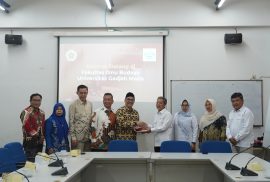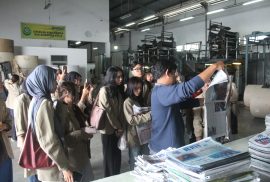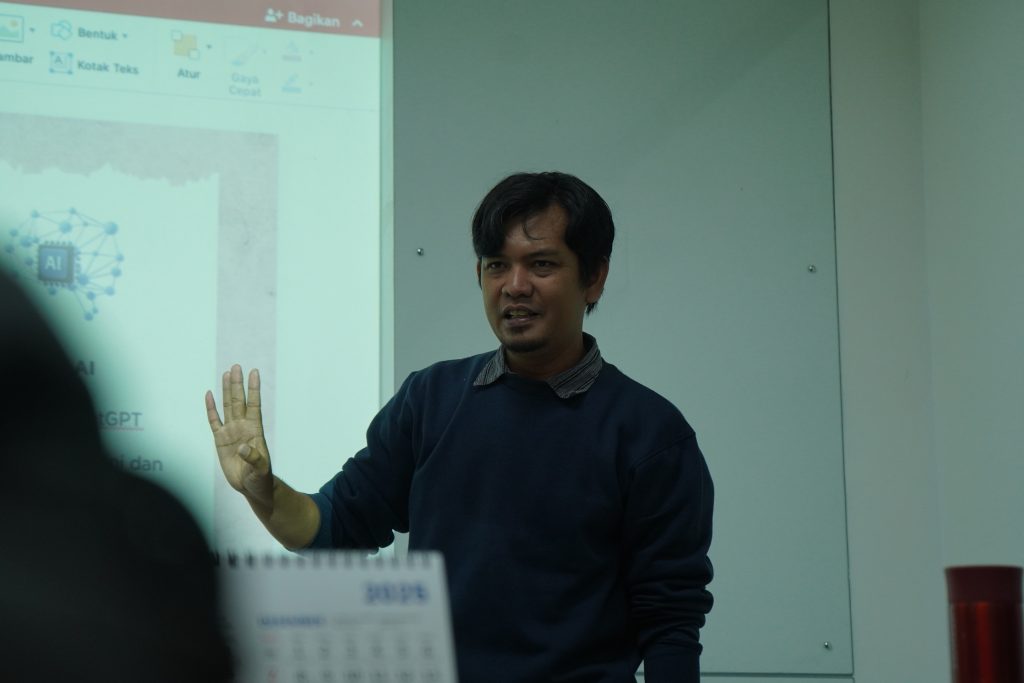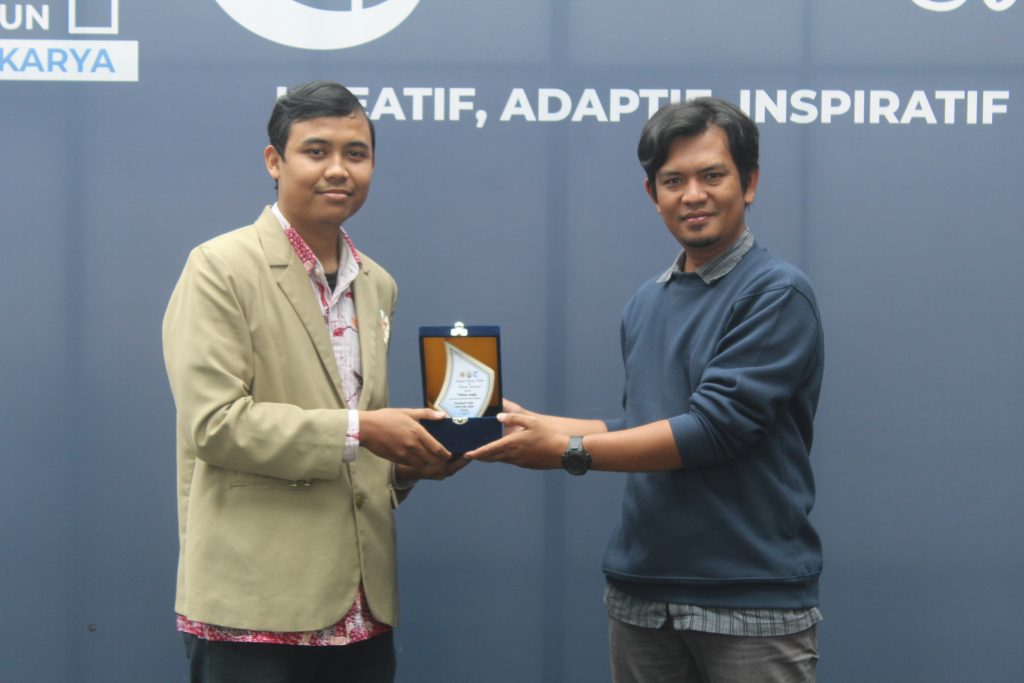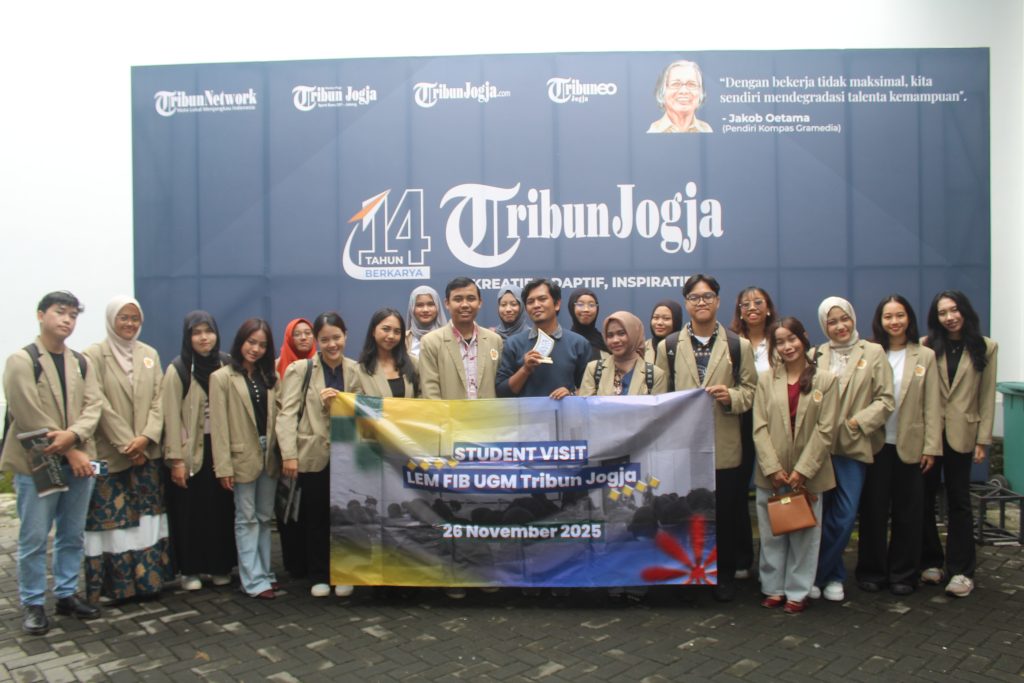Saturday, November 22, 2025 – students from the Middle Eastern Studies Program at Gadjah Mada University held a Community Service activity at Sekolah Teladan Yogyakarta. This activity was part of the students’ efforts to make a positive contribution to society, particularly in increasing understanding of Middle Eastern culture, one of which was through education. The event was held at Teladan School in Yogyakarta with the theme “Middle East Talk: Building Global Insight through Education, History, and Middle Eastern Culture”. UGM Middle Eastern Culture Studies students collaborated with teachers and students at the school through various educational sessions featuring interactive discussions and games.
The event began with a speech from the Chair of PKM KBTT, Ahmad Fikri, followed by a speech from the Director of Teladan School. In his speech, the director emphasized the importance of community service activities as a way to apply what has been learned and to increase students’ social awareness of their surroundings. After the speeches, the next series of activities was a presentation on education in Egypt by KBTT students, Himma Hameesha and Fikri Labib. The two presented on many topics, ranging from Egyptian culture and social life in Egypt to tips on obtaining scholarships to study in Egypt. The next speakers discussed Yemen, with material presented by KBTT students Lanang Hutama and Lc.
At the end of the event, souvenirs were presented by KBTT students to the School Director as a representative of the Yogyakarta Teladan School community who had contributed to this activity. The event closed with a group photo session and the hope that similar activities could be carried out regularly as a form of real service from the world of education to the wider community. This community service activity is expected
to strengthen the relationship between the world of education and the community, as well as broaden the horizons of students at Sekolah Teladan Yogyakarta to better appreciate global cultural diversity, especially that of the Middle East. Additionally, this activity also serves as proof that students of the Middle Eastern Cultural Studies Program at UGM not only study for themselves but are also ready to make a positive impact on the surrounding community.
[Jesica Amanda Florantika]




